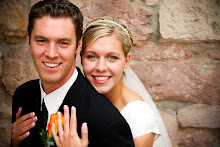Women and Education
About half of our Brigham Young University students are women. In my conversations with these women students and with faculty, administrative, and staff women I have detected some uneasiness and confusion about where we stand on education for women, especially vocationally oriented education.
A great deal is being said in our society today about the role of women. Since some of these statements are quite contradictory to what we have been taught by the leaders of our Church, some uneasiness is understandable.
Our young women properly aspire to and prepare themselves for the experiences and blessings of motherhood, which is their highest calling and opportunity for service. As you are aware, the leaders of our Church have consistently taught that “mothers who have young children in the home should devote their primary energies to the companionship and training of their children and the care of their families, and should not seek employment outside the home unless there is no other way that the family’s basic needs can be provided.” (Letter from the First Presidency to Elder Neal A. Maxwell and President Dallin H. Oaks, May 14, 1973.)
Our young women’s primary orientation toward motherhood is not inconsistent with their diligent pursuit of an education, even their efforts in courses of study that are vocationally related. According to current life expectancies, a 20-year-old woman can look forward to more than 50 additional years of life. Not all of that time will be spent in bearing children and raising families. In fact, from one-third to one-half of a young woman’s remaining years of life will be spent in activities preceding marriage and the rearing of children, or following the time when children have left the home. A young woman’s education should prepare her for more than the responsibilities of motherhood. It should prepare her for the entire period of her life.
Many of our young women will need to earn a living for themselves because they do not marry, because they do not marry until after some years of employment, or because they have been widowed or through other circumstances have been compelled to assume the responsibilities of the family breadwinner. A mother who must earn a living for the family in addition to performing the duties of motherhood probably has as great a need for education as any person in the world.
There are other reasons why it is important for our young women to receive a proper education. Education is more than vocational. Education should improve our minds, strengthen our bodies, heighten our cultural awareness, and increase our spirituality. It should prepare us for greater service to the human family. Such an education will improve a woman’s ability to function as an informed and effective teacher of her sons and daughters, and as a worthy and wise counselor and companion to her husband. Some have observed that the mother’s vital teaching responsibility makes it even more important to have educated mothers than to have educated fathers. “When you teach a boy, you are just teaching another individual,” President Harold B. Lee declared, “but when you teach a woman or a girl, you are teaching a whole family.” (Relief Society Magazine, January, 1965, p. 8.)
One of the most important purposes of a university education is to prepare men and women to be responsible and intelligent leaders and participants in the lives of their families, in their Church, and in their communities. That kind of education is needed by young men and young women alike. In short, we make no distinction between young men and young women in our conviction about the importance of an education and in our commitment to providing that education.
President Dallin H. Oaks Brigham Young University Devotional Assembly, February 12, 1974
Tuesday Things.
16 hours ago








No comments:
Post a Comment